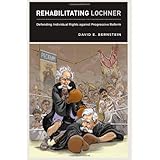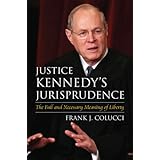
Average Reviews:

(More customer reviews)Are you looking to buy Rehabilitating Lochner: Defending Individual Rights against Progressive Reform? Here is the right place to find the great deals. we can offer discounts of up to 90% on Rehabilitating Lochner: Defending Individual Rights against Progressive Reform. Check out the link below:
>> Click Here to See Compare Prices and Get the Best Offers
Rehabilitating Lochner: Defending Individual Rights against Progressive Reform ReviewIn my constitutional law class, my understanding of Lochner was as follows: The Supreme Court essentially made up the right to liberty of contract around 1900, and used that right to subvert needed economic reform while ignoring the rights of minorities and others. Wise Justices like Holmes saw right through the majority, and revealed that they were simply trying to impose the Justices' anti-labor preferences on the country at large. Meanwhile, Holmes and his colleague Brandeis started to redirect the Fourteenth Amendment away from the protection of property and contract rights toward the protection of civil liberties. In the 1930s, the anti-Lochner forces won, and Holmes and Brandeis's Progressive vision came to dominate constitutional law.The thrust of Rehabilitating Lochner is that all of this is conventional wisdom, yet it is wrong in almost every detail. It's a short, readable book, but manages to convey an incredible amount of information about the real story of Lochner, its supporters, its Progressive critics, and the continuing influence of Lochner on modern constitutional law. It's too rich to try to sum up in a short review, so just read it!Rehabilitating Lochner: Defending Individual Rights against Progressive Reform OverviewIn this timely reevaluation of an infamous Supreme Court decision, David E. Bernstein provides a compelling survey of the history and background of Lochner v. New York. This 1905 decision invalidated state laws limiting work hours and became the leading case contending that novel economic regulations were unconstitutional. Sure to be controversial, Rehabilitating Lochner argues that the decision was well grounded in precedent—and that modern constitutional jurisprudence owes at least as much to the limited-government ideas of Lochner proponents as to the more expansive vision of its Progressive opponents. Tracing the influence of this decision through subsequent battles over segregation laws, sex discrimination, civil liberties, and more, Rehabilitating Lochner argues not only that the court acted reasonably in Lochner, but that Lochner and like-minded cases have been widely misunderstood and unfairly maligned ever since. (20110627)
Want to learn more information about Rehabilitating Lochner: Defending Individual Rights against Progressive Reform?
>> Click Here to See All Customer Reviews & Ratings Now
